
Rick Sikes was born into an era where music was the primary source of entertainment for American people. It was said that Rick could yodel before he could talk. However, his love for music ran deep and at a very young age, he wasn’t satisfied to be just a “listener”.
He penned his first song at the age of fourteen and called it “The Bluebonnet Waltz”. He played music with his younger brother, Bobby as they were growing up.
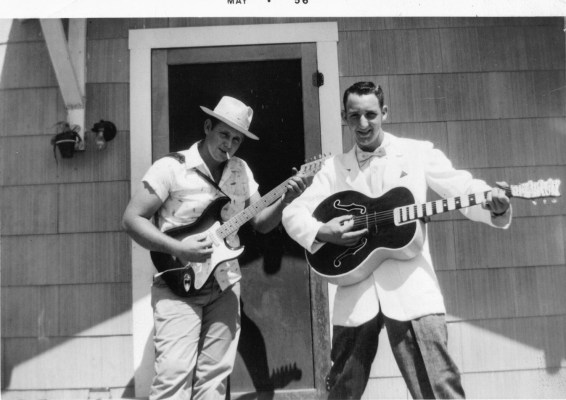
Rick and Bobby Sikes 1956
In high school, he and his childhood friend, Dean Beard, formed a band and played rodeos, school auditoriums, and private events.
It was Dean who would introduce Rick to Elvis Presley in 1955. As the story goes, Elvis rode a Greyhound bus into Coleman, Texas where Dean picked him up. They waited at Rick’s parents’ home for him to get off work so they could go to Abilene and play on Slim Willet’s Big State Jamboree.
In 1964, Rick had his own weekly TV music show on K-PAR TV in Abilene.
It was Dean who would introduce Rick to Elvis Presley in 1955. As the story goes, Elvis rode a Greyhound bus into Coleman, Texas where Dean picked him up. They waited at Rick’s parents’ home for him to get off work so they could go to Abilene and play on Slim Willet’s Big State Jamboree.
In 1964, Rick had his own weekly TV music show on K-PAR TV in Abilene.
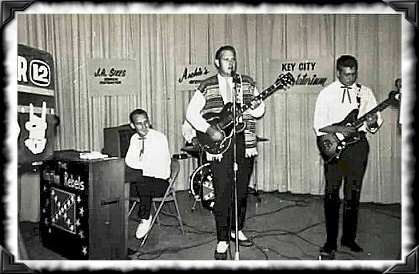
Rick Sikes & The Rhythm Rebels KPAR TV 1964
It was the highlight of Rick’s career as a musician and performer when in 1968, he was asked to back Bob Wills after the Texas Playboys had disbanded. At that point, Bob booked himself as Bob Wills and the Boys. Rick had a deep love and admiration for the man and considered it a huge honor to play music with him.
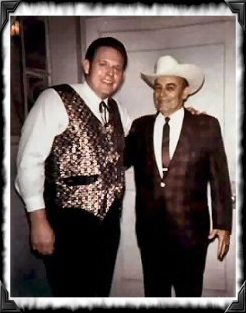
Rick Sikes and Bob Wills
Over the span of his career, he and his band backed many artists such as Willie Nelson, Red Foley, Bobby Bare, Sonny James, Stonewall Jackson, Loretta Lynn, Kenny Price, and Jimmy C. Newman, to name a few.
Rick wrote hundreds of songs and played all across Texas, Oklahoma, New Mexico, and on into California.
Although he’d made quite a name for himself in the world of Texas music, his career was cut short in 1971, when he was arrested, convicted, and sentenced to seventy-five years in prison for armed bank robbery. Rick served almost fifteen years in Leavenworth Penitentiary for a crime he did not commit.
Rick wrote hundreds of songs and played all across Texas, Oklahoma, New Mexico, and on into California.
Although he’d made quite a name for himself in the world of Texas music, his career was cut short in 1971, when he was arrested, convicted, and sentenced to seventy-five years in prison for armed bank robbery. Rick served almost fifteen years in Leavenworth Penitentiary for a crime he did not commit.
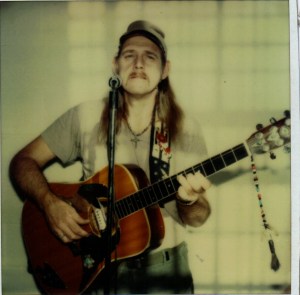
Rick in Leavenworth Prison 1979
Being a true rebel spirit, he struggled greatly with being locked away in a prison.
After many hours, days, and months of soul-searching, he decided the best way to serve his time was to stay busy and stay positive. He wrote a book of poetry including beautiful illustrations and hundreds of more songs. He learned to do Indian beadwork, oil painting, pen and ink drawings, leather tooling and made hundreds of pieces of intricate ceramics with his own special brand of artwork.
He also formed a band in prison that he named Rick Sikes and the Survivors. They entertained the other convicts when allowed.
After many hours, days, and months of soul-searching, he decided the best way to serve his time was to stay busy and stay positive. He wrote a book of poetry including beautiful illustrations and hundreds of more songs. He learned to do Indian beadwork, oil painting, pen and ink drawings, leather tooling and made hundreds of pieces of intricate ceramics with his own special brand of artwork.
He also formed a band in prison that he named Rick Sikes and the Survivors. They entertained the other convicts when allowed.
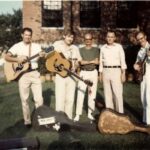

Rick Sikes and the Survivors
But, perhaps the most astonishing and miraculous accomplishment for him inside Leavenworth, was to be allowed to set up an actual recording studio. As far as is known, it was the only recording studio inside any penitentiary. He recorded many of his own songs, plus songs for other convicts. All of the songs on the CD Forty Foot High were recorded in this makeshift studio except for the title track that Country artist, Jamie Richards recorded many years after Rick’s passing.
Rick’s story is chronicled in the four books I wrote, along with the music CDs that accompany them.

